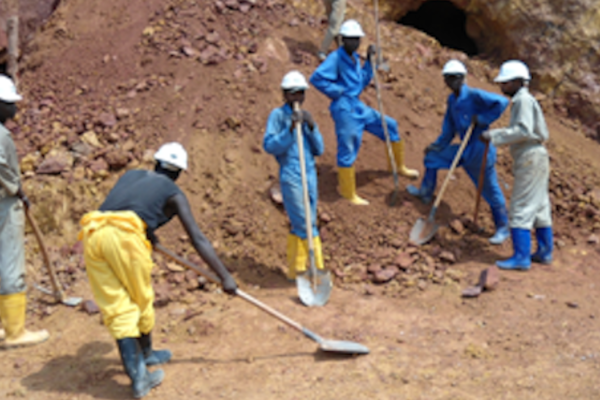
Exploitation minière industrielle et artisanale au Sud-Kivu. Possibilités d’une cohabitation pacifique ?
December 29, 2012Le secteur minier en République Démocratique du Congo (RDC) en général et au Sud-Kivu en particulier alimente toujours les débats tant au niveau international qu’au niveau national. Présenté sous plusieurs facettes, ce secteur au Sud-Kivu a été dans le temps industriel, puis artisanal et aujourd’hui il est en même temps artisanal et industriel. Le retour en force, ces dernières années, des société
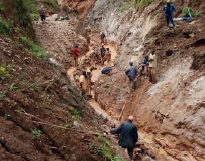
Mapping Conflict Minerals (2012)
December 28, 2012How GMES supports the International Peace Information Service (IPIS), in: Window on GMES, Special Issue: Discover the “S” in GMES, pp. 82-88 Exploitation of natural resources has, in most cases, a strong impact on the environment, often even spoiling natural habitats and affecting people’s way of life. The exploitation and trade of minerals can also fuel armed conflicts, as it is the case in the E
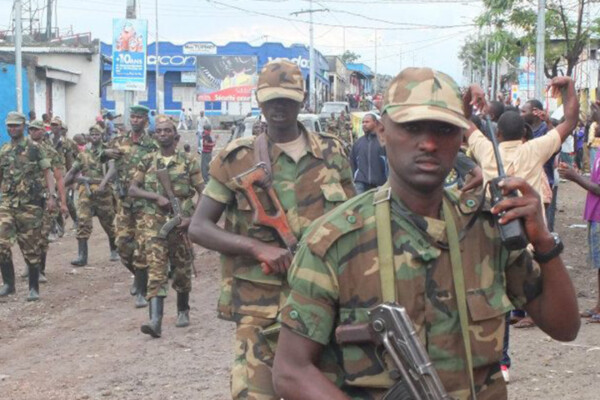
Mapping Conflict Motives: M23 (2012)
November 30, 2012In light of the recent occupation of Goma by M23 and the renewed risk of large-scale armed conflict in the DRC, IPIS publishes an update to its 2007-2010 ‘mapping conflict motives’ report series focussing specifically on the intentions of M23. The M23 rebels show a clear political ambition and a tendency to establish political control over territory and challenge Kinshasa’s authority – strategic i

Upstream Implementation of the OECD Due Diligence Guidance for Responsible Supply Chains of Minerals from Conflict-Affected and High-Risk Areas. Cycle 2 Interim Progress Report on the Supplement on Tin, Tantalum, and Tungsten
June 20, 2012Cycle 2 Interim Progress Report on the Supplement on Tin, Tantalum, and Tungsten. The following report is the second in a cycle of three on upstream companies’ implementation of the Supplement on Tin, Tantalum and Tungsten to the OECD’s Due Diligence Guidance for Responsible Supply Chains of Minerals from Conflict-Affected and High-Risk Areas. The objective of the following is to report on progres
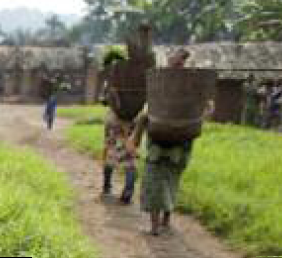
‘If you resist, we’ll shoot you’: The Democratic Republic of the Congo and the case for an effective Arms Trade Treaty
June 7, 2012IPIS contributed to the research for this AI report. In July 2012 UN Member States are to agree the final text of a comprehensive Arms Trade Treaty. The experience of arms proliferation and abuse in the Democratic Republic of the Congo should help to persuade States to establish strict rules consistent with States’ existing responsibilities under international law. This report focuses on several c
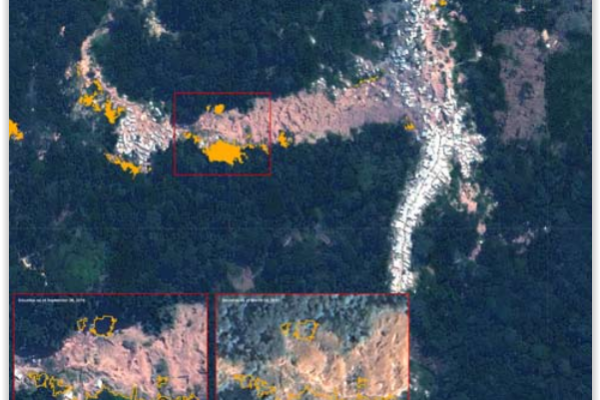
Bisie. A one-year snapshot of the DRC’s principal cassiterite mine (2011)
November 28, 2011Much has happened in the mining sector of Eastern DRC over the last year. President Kabila imposed a ban on all mining activities last fall, during which production fell considerably. As soon as the suspension was lifted in the spring of this year, the major global electronic companies stopped buying minerals from the region, provoking a de facto embargo on Congo’s minerals with detrimental effect
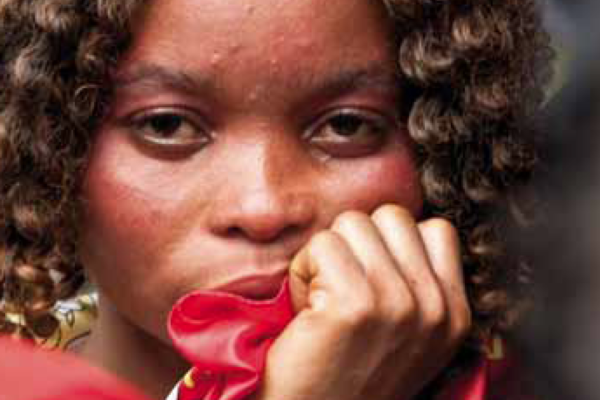
Violence against women in Eastern Democratic Republic of Congo. Whose responsibility? Whose complicity?
November 1, 2011IPIS contributed to the research for and writing of this ITUC report. Summary: Eastern DRC has been ravaged by war and violence since the mid-1990s. Civilians carry the greatest burden of the conflict. Women and girls are especially vulnerable to such attacks. Hundreds of women and girls get sexually violated in their homes and at their workplace. Fuelled and motivated by Congo’s minerals, rebel a

Upstream Pilot Implementation of the OECD Due Diligence Guidance for Responsible Supply Chains of Minerals from Conflict-Affected and High-Risk Areas
November 1, 2011Baseline Report on the Supplement on Tin, Tantalum, and Tungsten IPIS executed the research for and the writing of this OECD report. The present baseline report is the first in a cycle of three reports on the implementation by upstream companies of the Supplement on Tin, Tantalum and Tungsten of the OECD Due Diligence Guidance for Responsible Supply Chains of Minerals from Conflict-Affected and Hi
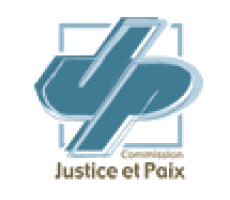
Kenya’s role in the trade of gold from eastern DRC
August 5, 2011On 11 September 2010, the Congolese Ministry of Mines put out a statement in which it announced President Kabila’s decision to suspend all exploitation and export of minerals from the provinces of North Kivu, South Kivu and Maniema until further notice. The statement explained that the ban was intended to put a stop to the illegal exploitation of natural resources in eastern DRC. In the decree est
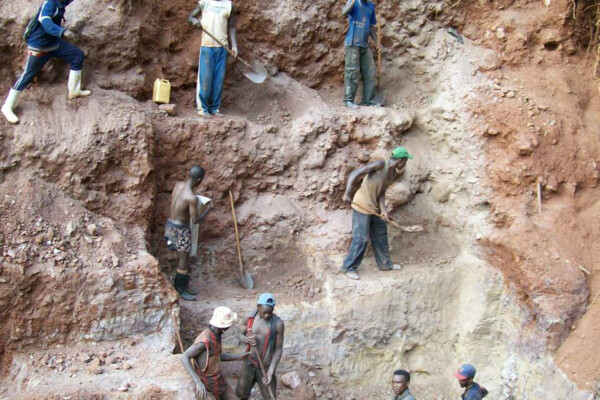
Guide to Current Mining Reform Initiatives in Eastern DRC
April 17, 2011US legislation has brought on a variety of initiatives aiming at mining reform in EDRC. This paper describes the basic elements of these initiatives, their genesis, the current state of affairs, the inkages between the initiatives and the main challenges they face. Further, the paper briefly evaluates the initiatives while focussing on the steps ahead. Download in pdf or open with issuu reader. ht
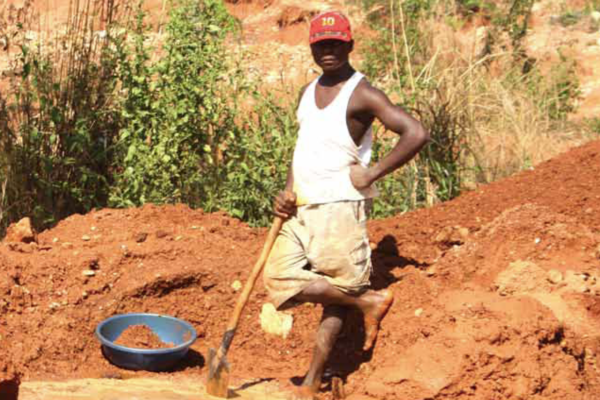
The complexity of resource governance in a context of state fragility: The case of eastern DRC
April 4, 2011A host of publications over the last decade have highlighted the important role played by artisanal and small-scale mining of coltan, gold and cassiterite in the ongoing conflict in the Democratic Republic of Congo (DRC), yet there is still little awareness of the modus operandi of the various actors involved in the exploitation and trade of these minerals. It is vitally important that initiatives
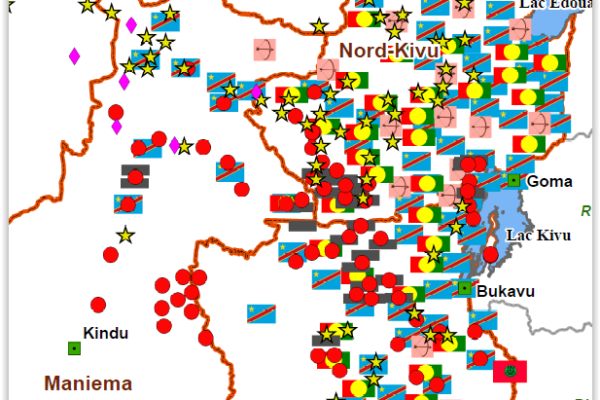
Simplified maps illustrating the link between natural resources and armed conflict in the DR Congo (2011)
January 17, 2011Simplified maps illustrating the link between natural resources and armed conflict in the DR Congo (in French) (January 2011) At the request of different users of the IPIS web maps, and with the support of the Belgian Development Cooperation (DGD), IPIS has produced a series of six simplified and printable PDF maps illustrating the link between mineral resources and armed conflict in the Democrati
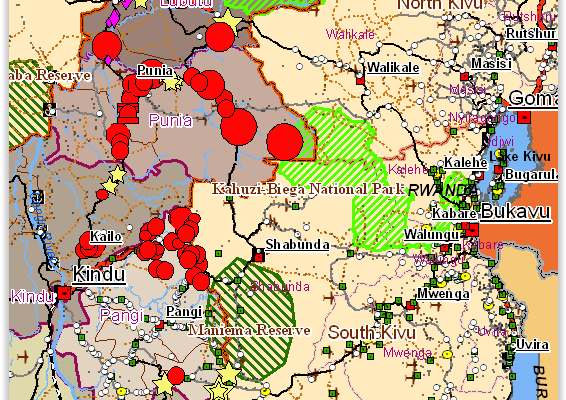
The complexity of resource governance in a context of state fragility: An analysis of the mining sector in the Kivu hinterlands (2010)
November 30, 2010The report ‘Mining activity and mineral trade in the Kivu hinterland’ was commissioned by the Directorate General for Development (DG DEV) of the European Commission and aims to fill an information gap by identifying the principal mining sites and analysing the trade networks of the ‘eastern hinterland’ of the Democratic Republic of the Congo (DRC), located in Maniema, North Katanga and Orientale
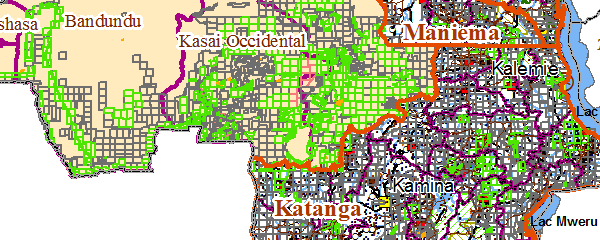
Mining Concessions in the DR Congo (2010)
August 17, 2010Mining Concessions in the DR Congo (August 2010) IPIS has produced an interactive web map of all mining concessions in the Democratic Republic of the Congo. The current map follows a concession map we published in August 2009 (as an addition to our Interactive Map of Militarised Mining Areas in the Kivus – MiMiKi), which shows concession areas in the Kivu provinces. The idea for an extended and up
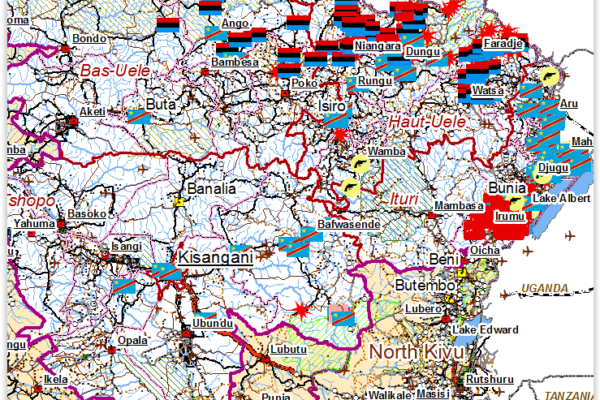
Mapping Conflict Motives: ‘Province Orientale’ (DRC) (2010)
March 22, 2010The districts of Ituri, Haut-Uele, Bas-Uele and the territory of Bafwasende continue to suffer from armed groups. Generally speaking, the strength of the armed groups throughout Orientale is limited and their effectives are few. Moreover, there is a considerable presence of the Congolese army. The Uele districts are the two most northern districts of Orientale bordering the Central African Republi
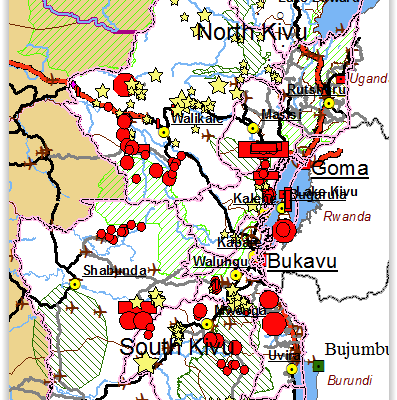
Accompanying note on the interactive map of militarised mining areas in the Kivus (2009)
August 16, 2009The MiMiKi map is a snapshot of the situation as it was in the period May-July 2009. All the armed groups deployed in the region profit directly from the mining activities. Armed groups have positions at more than half of the sites listed on the MiMiKi map where they obtain an (extra) income. The FARDC control some of the most important mining sites and do not restrain themselves from intervening
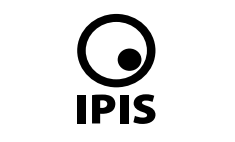
Le plan STAREC du gouvernement congolais: une analyse préliminaire
August 8, 2009Début juillet le gouvernement congolais a établi un plan de stabilisation pour l’Est de la RDC. L’initiative est restée sans écho dans les médias et le plan même n’a pas été rendu public. Néanmoins, après quelques recherches, IPIS à pu obtenir le document. Nous avons jugé que, dans le cadre des efforts congolais et internationaux pour résoudre la crise dans l’Est, il serait utile de résumer les po
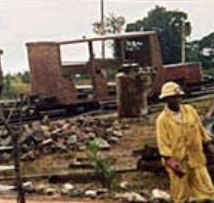
The impact of the global financial crisis on mining in Katanga
July 17, 2009This report examines the impact of the global financial crisis on the mining sector in Katanga, the southeast province of the Democratic Republic of the Congo. As far as the industrial mining sector is concerned, it is shown that the crisis exacerbated the uncertainty of mining companies that were waiting for the results of the review of the mining contracts and that were often in the middle of st
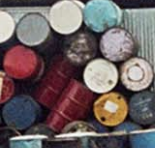
Culprits or scapegoats? Revisiting the role of Belgian mineral traders in eastern DRC
May 17, 2009Ever since the eruption of the second Congo war in August 1998, the mining sector in eastern DRC has been under scrutiny of UN Sanctions Committees, academics, NGOs, and local and international media, who have been worried and disturbed by the links between natural resource exploitation and armed conflict in the region. It has been argued that both state and non-state armed actors are deriving ben
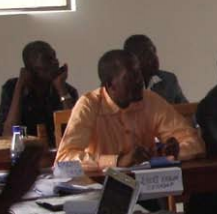
Rechercher la problématique des ressources naturelles dans la République Démocratique du Congo. Syllabus sur le cadre juridique
February 2, 2009Ce syllabus a été rédigé dans le cadre du projet ‘Renforcement de capacité d’ONG congolaises qui travaillent autour les ressources naturelles : méthodologies de recherche et rédaction de dossiers de haute qualité servant de base aux activités de campagne et de lobbying’. Ce projet est éxécuté par l’ONG belge International Peace Information Service (IPIS) et a pour objectif spécifique que les ONG c

